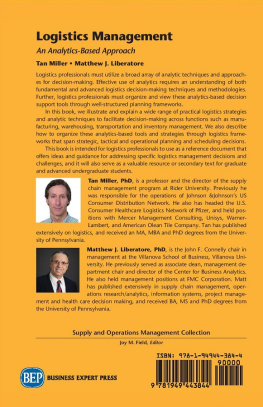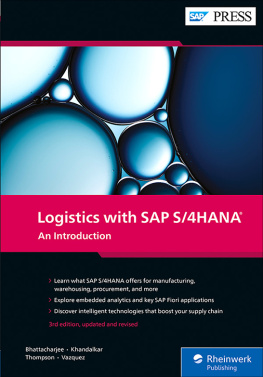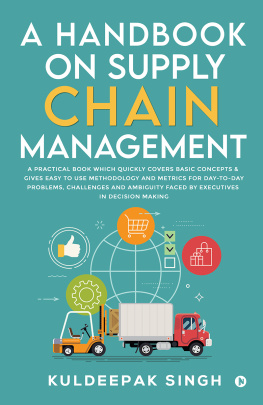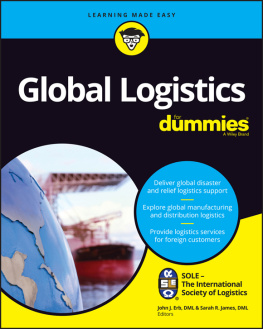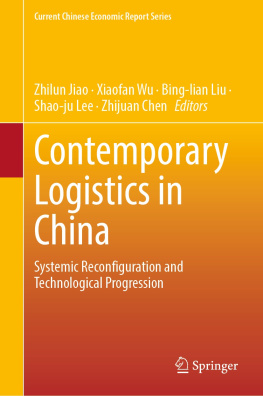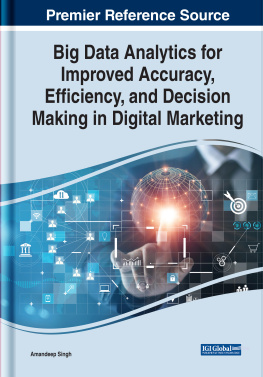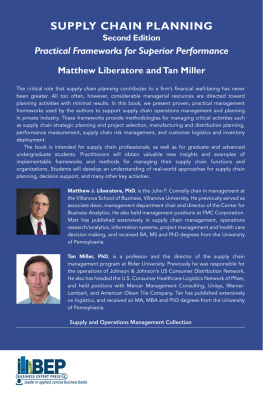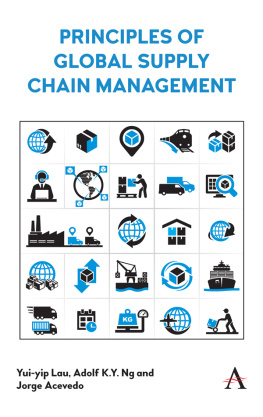Logistics Management
Logistics Management
An Analytics-Based Approach
Tan Miller
Matthew J. Liberatore

Logistics Management: An Analytics-Based Approach
Copyright Business Expert Press, LLC, 2020.
All rights reserved. No part of this publication may be reproduced, stored in a retrieval system, or transmitted in any form or by any meanselectronic, mechanical, photocopy, recording, or any other except for brief quotations, not to exceed 250 words, without the prior permission of the publisher.
First published in 2020 by
Business Expert Press, LLC
222 East 46th Street, New York, NY 10017
www.businessexpertpress.com
ISBN-13: 978-1-94944-384-4 (paperback)
ISBN-13: 978-1-94944-385-1 (e-book)
Business Expert Press Supply and Operations Management Collection
Collection ISSN: 2156-8189 (print)
Collection ISSN: 2156-8200 (electronic)
Cover image licensed by Ingram Image, StockPhotoSecrets.com
Cover and interior design by S4Carlisle Publishing Services Private Ltd., Chennai, India
First edition: 2020
10 9 8 7 6 5 4 3 2 1
Printed in the United States of America.
Dedication
This book is dedicated to my wife Jeanne and sons Lucas and Nate who have been so supportive and put up with me for all these years.
Tan Miller
This book is dedicated to my wife Mary and my daughters Kathryn, Michelle and Christine for always being there for me.
Matt Liberatore
Abstract
As we head into the ever-more globalized world of the 2020s, the critical role that logistics planning and operations plays in ensuring a firms financial well-being escalates in importance almost daily. Furthermore, the role of analytics in guiding both logistics planning and operational activities has spiked dramatically in the last decade, and this exponential growth shows no sign of slackening. As the phenomenon of Big Data has taken hold in the private sector, firms that as recently as 10 years ago devoted minimal resources to large-scale data mining and analytics have reversed course and invested heavily in data analytics.
In this environment, logistics professionals must have at their disposal, and must understand how to utilize, a broad array of analytic techniques and approaches to logistics decision making. Effective use of analytics requires a strong understanding of both fundamental and advanced logistics decision-making techniques and methodologies. Further, logistics professionals must organize and view these analytics-based decision support tools through well-structured planning frameworks.
In this book, based on more than 25 years of logistics industry practice, we illustrate and explain a wide range of practical logistics strategies and analytic techniques to facilitate decision making across functions such as manufacturing, warehousing, transportation, and inventory management. Further, we also describe how to organize these analytics-based tools and strategies through logistics frameworks that span strategic, tactical, and operational planning and scheduling decisions.
This book is intended for logistics professionals to use as a reference document that offers ideas and guidance for addressing specific logistics management decisions and challenges. In particular, it provides explanatory and how to implement guidance on foundational analytics that logistics professionals can employ to generate practical insights to facilitate their daily and longer-term logistics management activities. This book can also serve as a valuable resource or secondary text for graduate and advanced undergraduate students. Students will develop an understanding of leading edge, real-world approaches for logistics planning and scheduling, decision support, performance measurement, and other key logistics activities.
Keywords
logistics planning; logistics analytics; logistics planning frameworks; logistics management; operations management; logistics performance measurement; logistics metrics; transportation planning; transportation mode choice decision making; integrated inventory and transportation planning; strategic planning; production planning and scheduling; distribution planning; logistics; hierarchical planning; decision support systems; activity-based costing; collaborative planning, forecasting, and replenishment; the analytic hierarchy process; feedback loops
Contents
CHAPTER 1
Introduction
To introduce a previous book published in 2012, we stated that in todays competitive global economy, a firms market position and bottom-line financial performance is closely linked to its logistics performance. Today, as we head into the ever-more globalized world of the 2020s, the critical role that logistics planning and operations plays in ensuring a firms financial well-being escalates in importance almost daily. Furthermore, the role of analytics in guiding both logistics planning and operational activities has spiked dramatically since 2012, and this exponential growth shows no sign of slackening for the foreseeable future. Examples of this abound as in recent years many firms, both large and small, have launched new Data Science or similarly named groups. As the phenomenon of Big Data has taken hold in the private sector, firms that as recently as 10 years ago devoted minimal resources to large-scale data mining and analytics have reversed course. The fear of competitive disadvantage and the promise of gaining competitive advantages through data analytics have stimulated enormous internal investments in labor (i.e., data scientists), hardware, and software across industry.
In this environment, logistics professionals must have at their disposal, and must understand how to utilize, a broad array of analytic techniques and approaches to logistics decision making. Effective use of analytics requires a strong understanding of both fundamental and advanced logistics decision making techniques and methodologies. Further, logistics professionals must organize and view these analytics-based decision support tools through well-structured frameworks.
In this book, we illustrate and explain a wide range of practical logistics strategies and analytic techniques to facilitate decision making across functions such as manufacturing, warehousing, transportation, and inventory management. Further, we also describe how to organize these analytics-based tools and strategies through logistics frameworks that span strategic, tactical, and operational planning and scheduling decisions. Logistics professionals can use this text as a reference document that offers ideas and guidance for addressing specific logistics management decisions and challenges. In particular, this book provides explanatory and how to implement guidance on foundational analytics that logistics professionals can employ to generate practical insights to facilitate their daily and longer-term logistics management activities.
Objectives of the Book
In over 25 years of private industry and consulting experience, we have implemented numerous management decision support and performance measurement systems to manage logistics functions. Further, we have implemented these systems with a keen eye focused on how each system and technique fits into an overall framework for analytics-based logistics decision making in a firm. The implementation of one system or technique typically leads to additional related implementations over time, particularly if the initial implementation generates benefits highly valued by an organization. For this reason, it is critical that one view the development and installation of logistics decision support systems (DSS) within the context of the logistics organizations overall long-term and short-term needs. Our experience has taught us that firms that take this approach make themselves significantly more competitive and agile relative to firms that bounce from one implementation to the next without an overall framework and vision for their logistics decision making processes.

